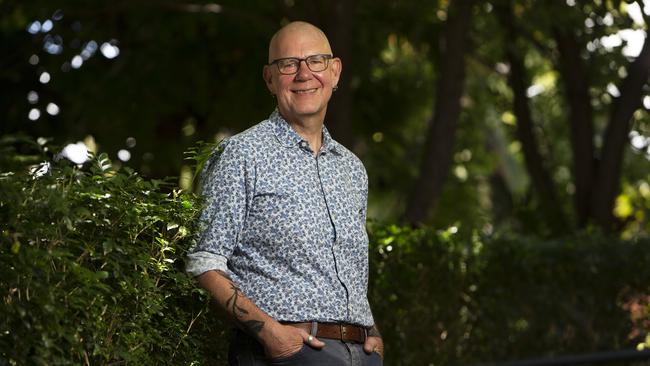Minda reveals $10.8m deficit, blames NDIS for cash crisis as it shifts back to ‘core business’
SA’s largest disability provider is facing a deficit of more than $10m, but blames huge NDIS shortfalls – and decisions by previous management.
SA News
Don't miss out on the headlines from SA News. Followed categories will be added to My News.
The head of Minda, South Australia’s largest disability provider, says massive shortfalls in NDIS funding have contributed to the organisation’s dire financial position.
Statements lodged with the charity’s regulator revealed millions of dollars in losses and hefty cost blowouts for the embattled not-for-profit. It also has a $23m bank loan hanging over its head.
But chief executive Dr David Panter maintained Minda was in “recovery mode” and the provider had a three-year plan to improve both its finances and its service model.
The strategy is underpinned by a shift back to “core business” after a period in which, in the view of Dr Panter, Minda diversified too much into unrelated ventures, including development of the luxury Brighton Dunes retirement village.
It will consider selling businesses providing supported employment in the areas of wine storage, electronic and mattress recycling and property maintenance. He said the village was now full and “over the hurdle”.
Dr Panter said shortfalls in NDIS funding were forcing Minda to chip in to cover essential costs — which in the case of some clients has meant an annual contribution as high as $200,000.
A common issue, he said, occurred when clients were funded to live in group homes but, for various reasons, prefer or need to live alone.
“Plans don’t stack up and we end up having to meet the gap ... obviously we can’t leave them in an environment which is unsafe,” he said.
He said the average amount in a Minda client’s fund was about $200,000, up from about $180,000 a year ago but still well below the national average of nearly $300,000. Dr Panter was appointed at the beginning of last year following a tumultuous few months for Minda, culminating in the board’s dismissal of the former chief executive officer and chief operating officer.
Whistleblowers came forward alleging issues including chronic staff shortages and squalid living conditions, prompting the disability services watchdog to conduct extra checks on clients.

He declined to reflect on events that transpired before his appointment, but acknowledged “certain decisions were made which, if I had been here, I wouldn’t have made, but I wasn’t”.
Dr Panter said a $10.8m deficit revealed in the 2021-22 financial report was reached after he advised the board to “overhaul the books” and ensure no further issues are encountered down the track.
Among the most concerning parts of the report was the assessment of an independent auditor that there was “material uncertainty” that “may cast significant doubt on the group’s ability to continue”, referring to a $23m bank loan due to be reviewed in April.
Dr Panter said the auditor looked at a worst-case scenario, in which Minda was refused a renewal and forced to repay the loan — but he had “no doubt” current arrangements would be extended.
The organisation has also cut 50 positions from its back office to save $5m, and restructured its staff management model.
Efforts have been made to further “deinstitutionalize”, including referring to the Brighton site as a neighbourhood rather than a campus, setting up a group of clients to represent their own interest, and allowing clients to set rules for their homes.
Dr Panter said, when he began in the role, Minda had not taken on any new supported living clients for several years. Since then it has received 100 applications and is working with several people who met the criteria.
Dr Panter said clients who were having three pre-prepared meals delivered to their homes and having their laundry taken away to be cleaned were now being assisted to carry out such tasks on their own.
The NDIS did not respond to inquiries before deadline.
More Coverage
Read related topics:Aged Care





